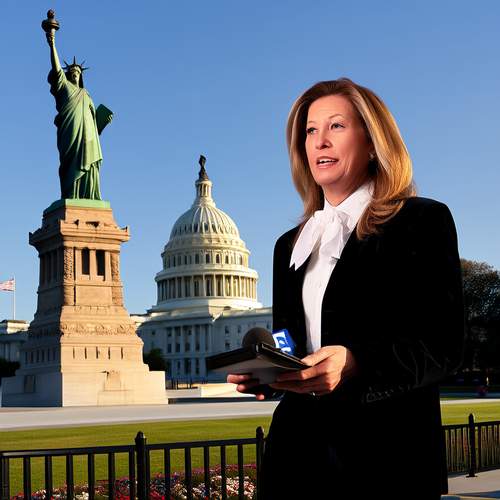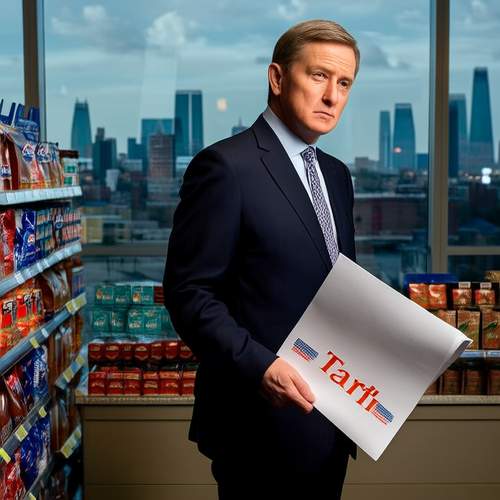In a striking shift from the previous administration’s approach, the Trump administration has embarked on a path of significantly reducing corporate accountability, dropping a wide array of enforcement actions against major companies. This move has raised alarm bells among consumer advocates who argue that it undermines essential consumer protections and emboldens businesses to act with impunity.
Under the Biden administration, several high-profile companies faced legal actions for alleged misconduct. Boeing, for instance, was accused of defrauding the Federal Aviation Administration (FAA) in connection with the fatal 737 Max crashes that claimed 346 lives. The company had agreed to plead guilty, acknowledging its role in these tragic incidents. However, under the Trump administration, the Justice Department has signaled its intention to drop this case, a move that has been met with outrage from the families of the crash victims. Attorneys representing these families have condemned the decision as “morally repugnant,” stating that it dishonors the memories of those who perished due to Boeing’s negligence.
Similarly, the Securities and Exchange Commission (SEC) had brought a case against Coinbase, the largest cryptocurrency exchange in the US, accusing it of unlawfully profiting by operating as an exchange, broker, and clearing agency without proper registration. This case, too, has been dropped under the Trump administration. Coinbase, which had challenged the SEC’s assertion, praised the decision, arguing that the SEC had overstepped its bounds.
The Consumer Financial Protection Bureau (CFPB) had also taken action against Capital One, alleging that the bank had cheated millions of consumers by failing to pay over $2 billion in interest to holders of its high-interest savings accounts. This lawsuit, like many others initiated by the CFPB, was dropped after the agency’s director was dismissed and its funding was significantly reduced. Capital One welcomed the dismissal, stating that it strongly disputed the allegations.
The Department of Transportation had sued Southwest Airlines for operating two “chronically delayed flights” in 2022, resulting in 180 flight disruptions. This case was quietly dropped by the Justice Department, with the Department of Transportation defending the decision, arguing that the lawsuit was politically motivated and that Southwest had since remedied the underlying issues.
Most recently, the Federal Trade Commission (FTC) dropped a case against PepsiCo, which had been accused of gaining “unfair pricing advantages” with a large retailer. The FTC’s chair, Andrew Ferguson, described the Biden administration’s suit as a “nakedly political effort,” asserting that it was based on little more than a hunch. PepsiCo expressed its relief and gratitude for the FTC’s decision, reaffirming its commitment to fair and non-discriminatory pricing practices.
Consumer advocates, such as Chuck Bell from Consumer Reports, have voiced their concerns about these developments. Bell argues that the administration’s actions are effectively dismantling consumer financial protection, leaving individuals vulnerable to exploitation by banks and other financial services companies. “They’ve never seen a business practice they didn’t approve of,” he laments, highlighting the administration’s apparent bias towards corporate interests.
The Trump administration’s approach extends beyond merely dropping existing cases. It also aims to facilitate corporate mergers, particularly in the financial services sector. The Office of the Comptroller of the Currency (OCC), a key financial regulator, has introduced new rules to streamline the approval process for mergers, including Capital One’s acquisition of Discover. According to Acting Comptroller of the Currency Rodney Hood, these changes are intended to promote competition and drive economic growth and innovation.
However, consumer advocates are not standing idly by. They are mounting legal challenges to counter the administration’s rollback of consumer protections. Despite their efforts, they acknowledge the uphill battle they face. John Breyault, vice president of public policy for the National Consumers League, warns that the administration’s actions are eroding the very foundation of consumer protection. “It’s not a surprise they would de-prioritize it,” he says. “But they’re seeking to make these agencies non-functional. That should worry all consumers.”
The implications of these actions are far-reaching. By dropping cases against major corporations, the Trump administration is sending a clear message that businesses can operate with less oversight and accountability. This shift not only undermines the legal framework designed to protect consumers but also creates an environment where corporate misconduct may go unpunished. The administration’s stance on facilitating mergers further suggests a prioritization of corporate interests over consumer welfare.
The Trump administration’s rollback on corporate accountability represents a significant threat to consumer protection. While businesses may welcome the reduced regulatory burden, consumers stand to lose vital safeguards against corporate malfeasance. The administration’s actions risk creating a landscape where businesses can exploit consumers without fear of legal consequences. As consumer advocates continue to fight against these changes, it remains to be seen whether they can successfully restore the balance between corporate interests and consumer protection.

By Grace Cox/May 26, 2025

By Emma Thompson/May 26, 2025

By Christopher Harris/May 26, 2025

By Laura Wilson/May 26, 2025

By Thomas Roberts/May 26, 2025

By Laura Wilson/May 26, 2025

By Amanda Phillips/May 26, 2025

By Noah Bell/May 26, 2025

By Laura Wilson/May 26, 2025

By John Smith/May 26, 2025

By Sarah Davis/May 26, 2025

By James Moore/May 26, 2025

By Amanda Phillips/May 26, 2025

By Michael Brown/May 26, 2025

By Daniel Scott/May 26, 2025

By Thomas Roberts/May 26, 2025

By Victoria Gonzalez/May 26, 2025

By Grace Cox/May 26, 2025

By Rebecca Stewart/May 26, 2025

By Laura Wilson/May 26, 2025